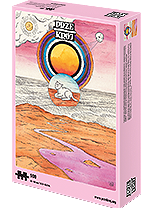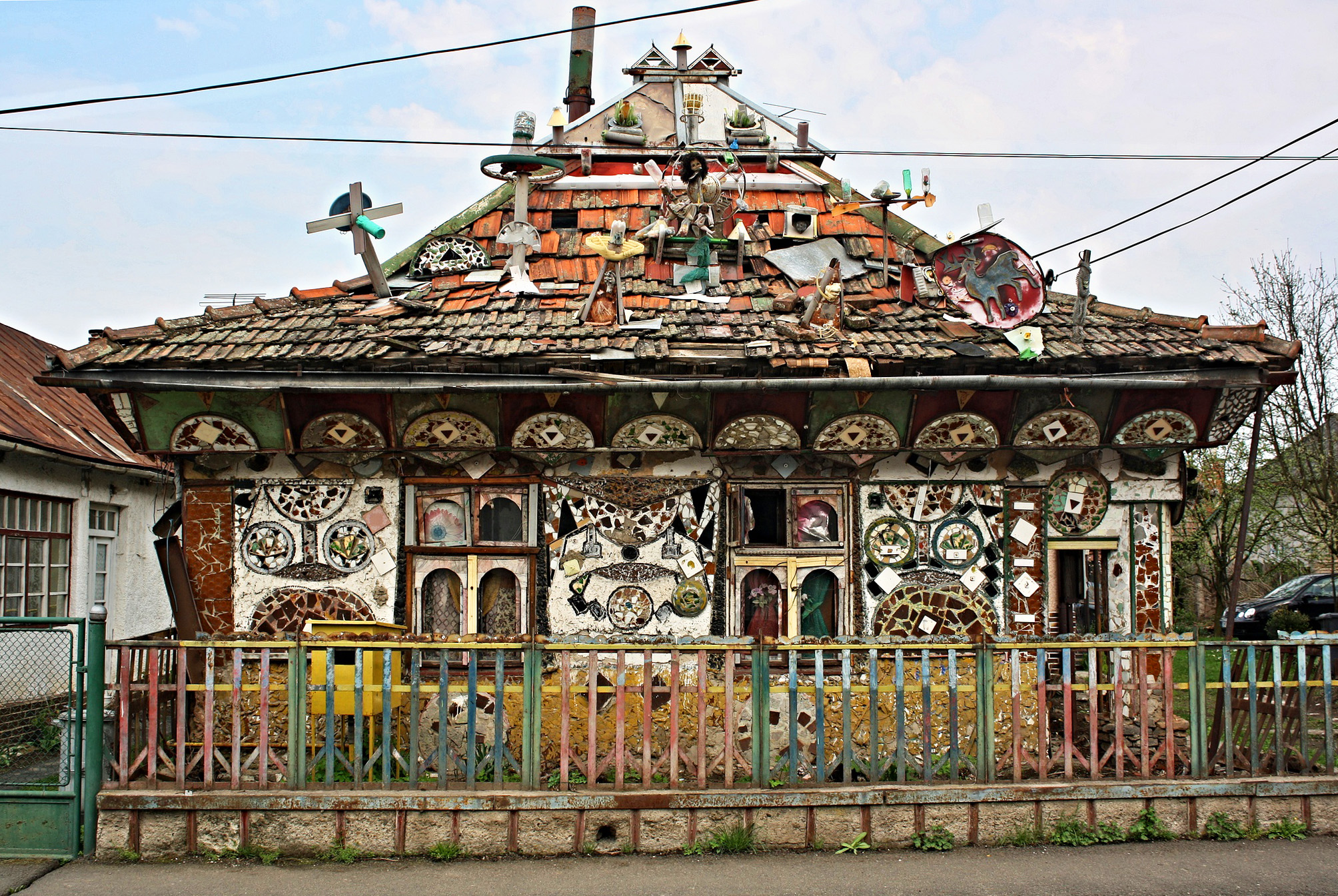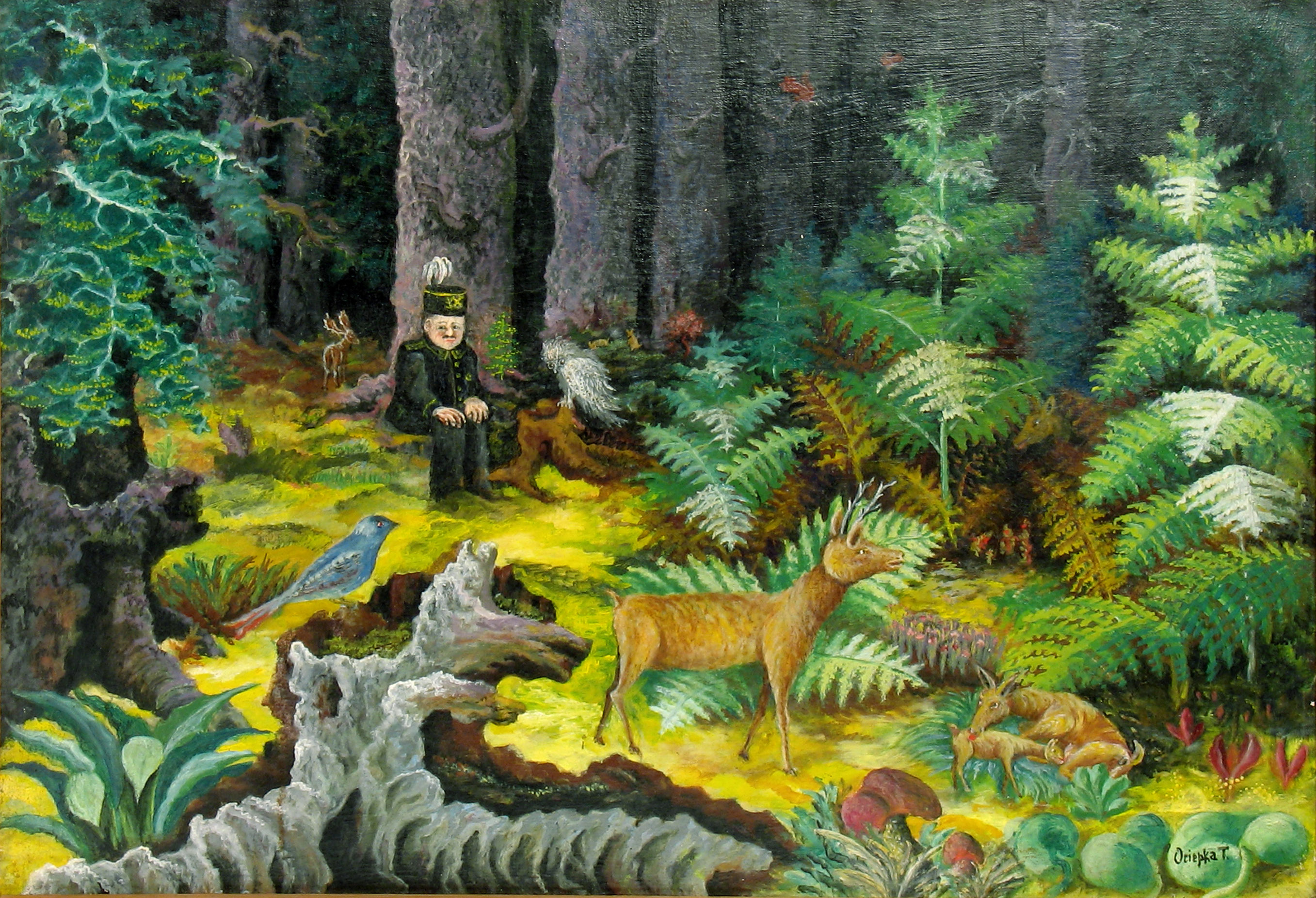
Back in the 1990s, in a small village in the south-eastern corner of Slovakia, there stood a strange house on Main Street. As a kid, I used to walk past it daily, on my way to school. As a matter of fact, there were two buildings: a peasant house and a small workshop beside it. Decorated with all sorts of weird and wonderful art, they were the highlight of my childhood mornings.
Why, exactly? Well, it was the 90s and I was a child. But besides that, it was simply exciting to see something new. It’s true that I was less fascinated by the colourful mosaics, cut plastic bottles filled with plastic flowers, pinwheels, mutilated dolls and who knows what else, than I was by the posters of muscular action heroes – the likes of Rambo, Bruce Lee and Chuck Norris – but I always quickly ran my eyes past the walls as I moved my tiny legs, not to be late for class.
The house and the workshop belonged to József Balogh, a local cobbler. He was a big, strong man, but already old; missing a few teeth and with long, pearly-curly hair. He was born in Vojka (present-day Slovakia) on 3rd January 1920 into a peasant





